
Faith and fear: how Muslim anxiety over Trump’s travel ban unfolds in Hong Kong
City residents worry for relatives and friends in the US, while plans by some to work or study in America are now in disarray
In a seven-page document titled “Executive order protecting the nation from foreign terrorist entry into the United States”, citizens from seven Muslim-majority nations, including refugees, were told they had been banned from entering America.
The order would soon be suspended by a federal judge, but not before it had disrupted the lives of hundreds of people. The ensuing furore saw protests on streets across the US, but the impact of the billionaire businessman’s move sent ripple effects far beyond the country’s borders.
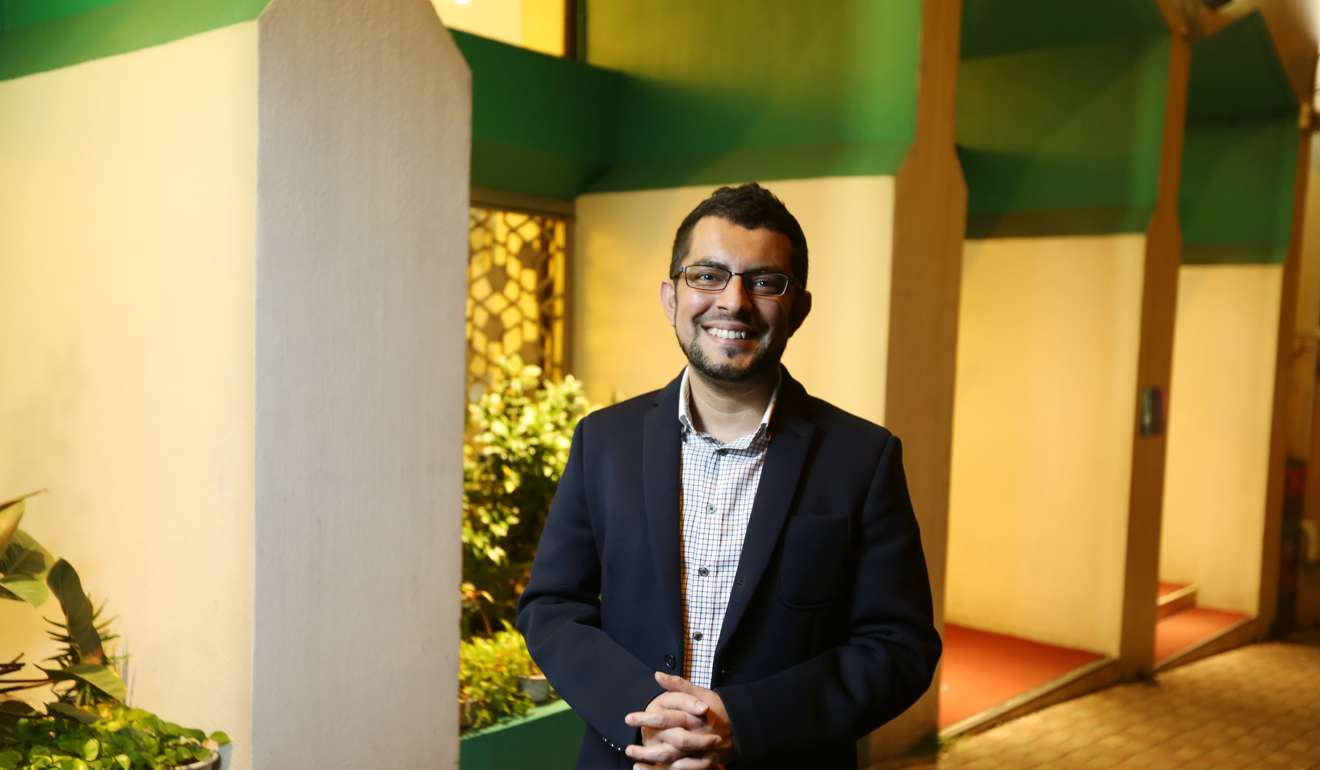
With the order in limbo owing to a long line of legal challenges, the president’s team issued a new, revised version on Monday, this time only targeting six nations.
Yasir, 27, who prefers not to reveal his full name for fear of stalling his academic ambitions, said that despite the few changes introduced, the directive remained the same at heart, and that the shock he had felt when he first heard news of the ban would not be fading anytime soon with Trump vowing to pursue his hardline immigration agenda.
“There was one post on Facebook from my cousin in Texas that got stuck in my head. She said: ‘I am scared for my children,’” he said, describing how it had made his heart sink.
With the ban being introduced on a Friday night in the US, “she spent the entire weekend in horror thinking about what could happen to her children and if she should send them to school on Monday,” said Yasir, who was following her angst from over 10,000km away.
In that same weekend Yasir was to realise that the executive order would not only affect his cousins in the US, but also have a direct impact on his own life.
A mechanical engineer doing a master’s degree in business administration at a local university, Yasir was planning to apply next month for an exchange programme in the US. His life plans, considered over nine years, had suddenly been put on hold.
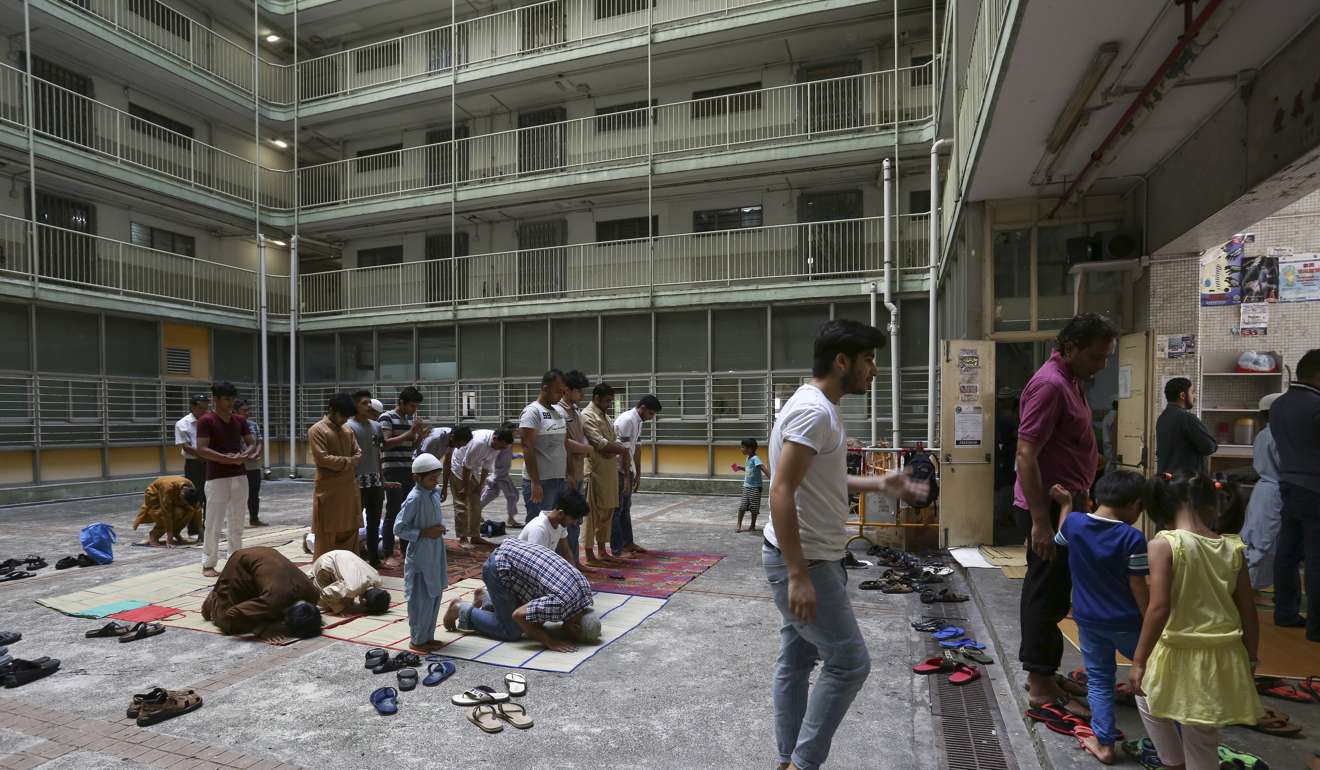
Hong Kong is home to some 250,000 Muslims. Many come from countries such as India, Pakistan and Malaysia, with domestic helpers from Indonesia representing a big portion.
Although the US might seem a distant country, many members of the local community are fearing for the safety of relatives there, while others are cancelling plans to move to the country or reconsidering leisure or business trips. But regardless of their connections to America, many say the new policies are having a profound psychological impact that won’t easily be erased.
The original January 27 travel ban targeted citizens from seven Muslim-majority countries – Iran, Iraq, Libya, Somalia, Sudan, Syria and Yemen – for 90 days and suspended the nation’s refugee programme for four months. The immigration directive was then halted by a federal appeal court.
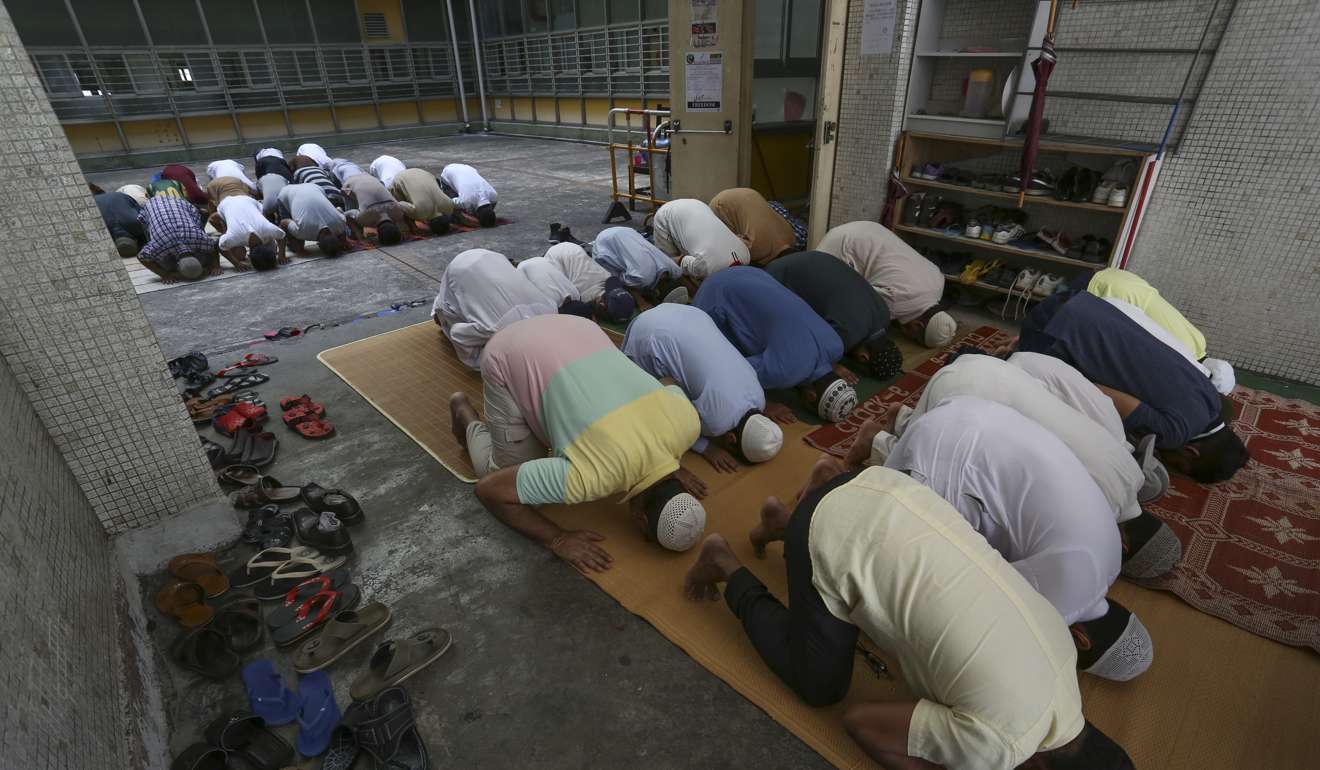
Monday’s new executive order was announced as an attempt to blunt legal and political challenges. It excluded Iraq from the list but continued to block citizens of the six other nations.
The revised directive, which will take effect on March 16, also exempted permanent residents of the US and current visa holders.
In Yasir’s opinion, the new order will have precisely the same effect as the first one.
“This was not made out of sympathy for anyone ... Trump just doesn’t want congress or other institutions preventing him putting it in place,” he said.
Yasir said he could not predict what was to come, but felt a lot of the damage had already been done.
“Although the ban does not include Pakistani passport holders, I think it doesn’t matter which country it is. It’s outright discrimination on a state level … It’s an outright injustice.”
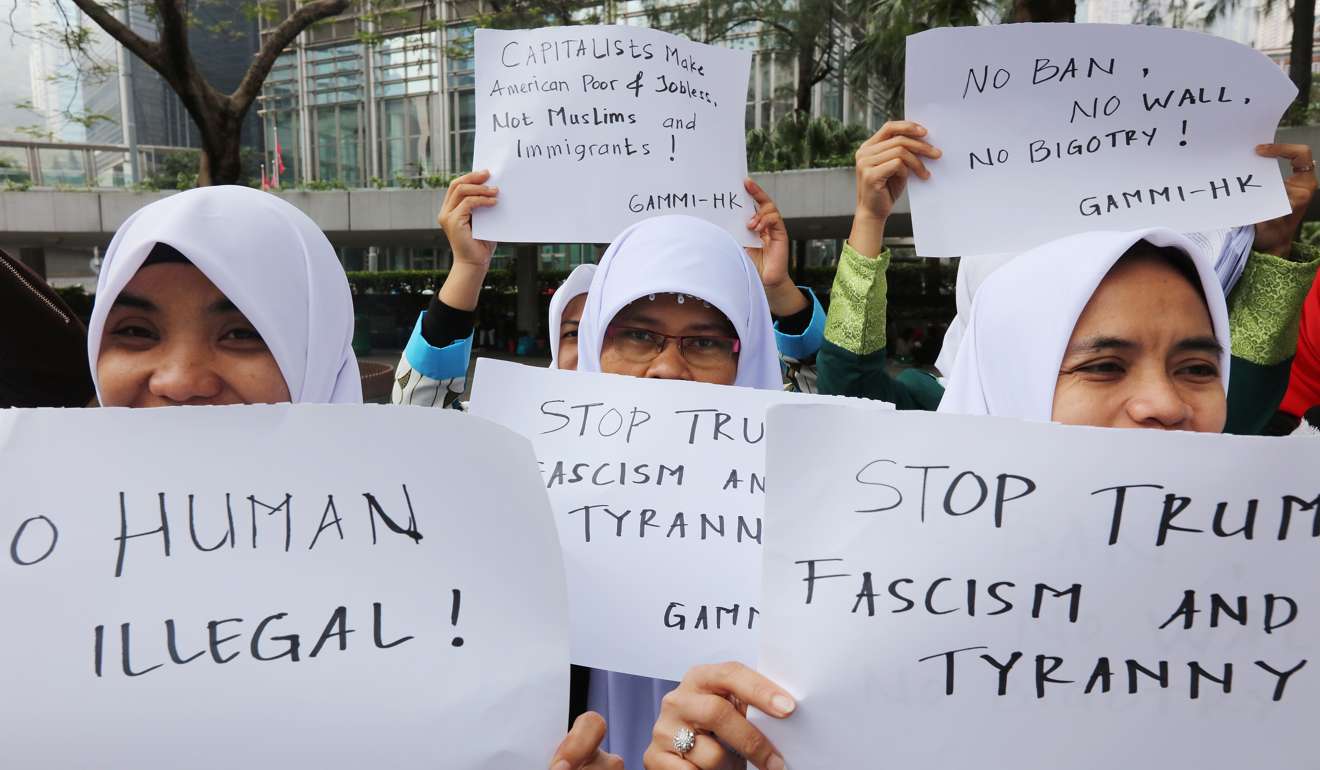
Yasir previously had a list of learning institutions in the US he was dreaming of attending, among them New York University, the Kellogg School of Management at Northwestern University and Wharton School at the University of Pennsylvania.
“I prioritised these ones, but right now I am changing that,” he said. “I don’t think I will be able to get the visa. And even if I am able to get it, I might not be able to adjust to that environment right now … There are many hate crimes.”
Relatives living in Texas had told him they had heard of a mosque being burned down and members of the local Muslim community receiving insults on the streets. Some women had even had their scarves removed forcibly in public, they said.
Yasir is now looking at other options. “I am thinking of the University of Toronto, because Canada is very supportive. I also have some options in London … The US has become either my lowest priority or I am not going,” he said.
Fabio Mohammad, 32, who was born and raised in Hong Kong, is in a similar situation.
“I was considering doing a master’s degree in the US, but the situation seems to be very bad now and my family are very concerned,” he said.
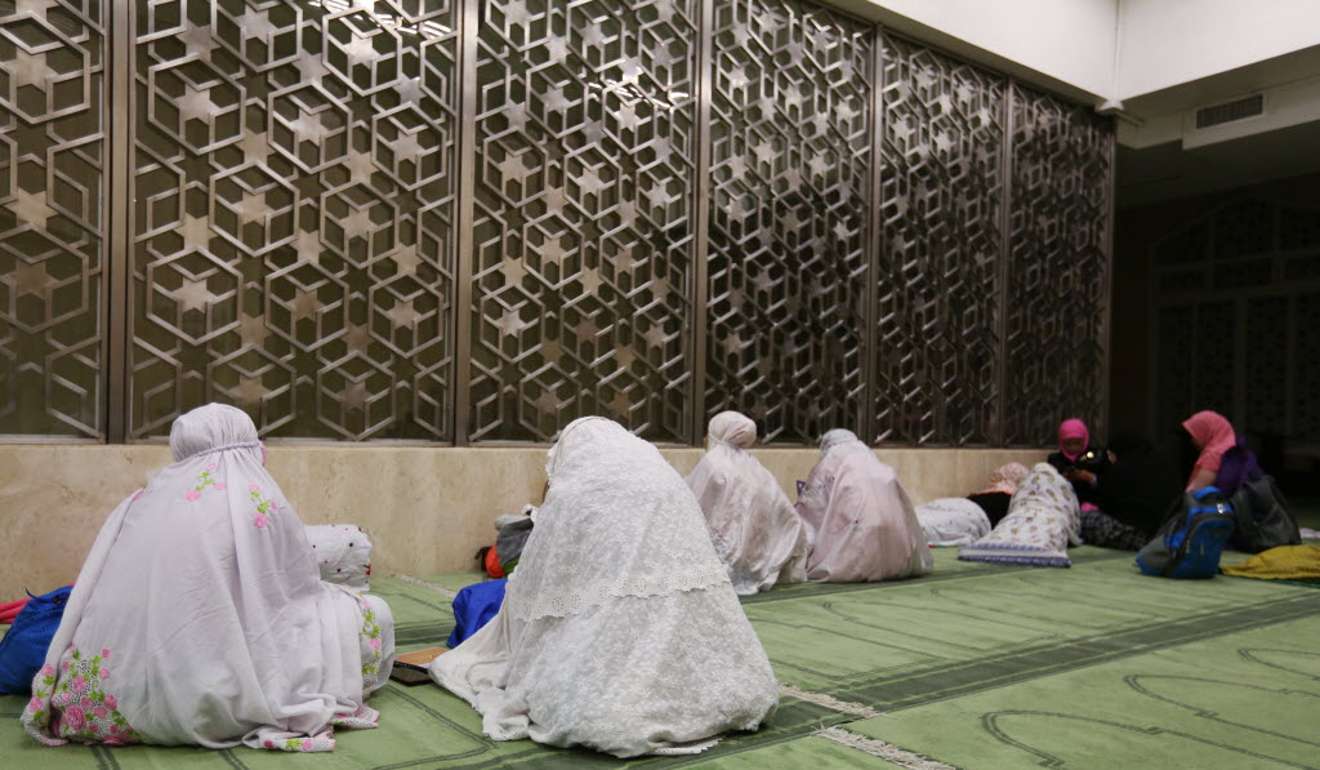
Mohammad, whose family is originally from Pakistan, said he had been planning to live in the states for some three years because it would give him a competitive advantage back in the city where he was born.
But the sales manager, who studied human resources as a student, said recent events had dashed his dreams of going away.
The US was becoming a hostile country for Muslims, he said, and his impression of Europe was not very positive either.
Far-right parties have made electoral gains in some European countries in recent months amid an influx of refugees to the continent and increasing disillusionment with the European Union.
“Now my plans are suspended. I don’t think I will take the chance to go abroad in the coming years. I feel it’s very hectic and scary out there, ” he said, noting that Hong Kong was still a very safe place for Muslims.
Zaiq Ali, 35, chairman of the Hong Kong Islamic Youth Association, said many people in the Muslim community had been left “a bit disturbed”.
“At the end of the day, this is not just about paperwork, it’s affecting us all psychologically,” Ali said.
The youth leader said the new executive order reinforced Trump’s stance against Muslims. “The message is still there. It’s targeting Muslim countries, it does matter if they excluded Iraq,” he said.
Zoheir Tyebkhan, 68, the chairman of the Incorporated Trustees of the Islamic Community Fund of Hong Kong, said the new policies were fuelling negative sentiment against Muslims, particularly among those who had little knowledge of the religion.
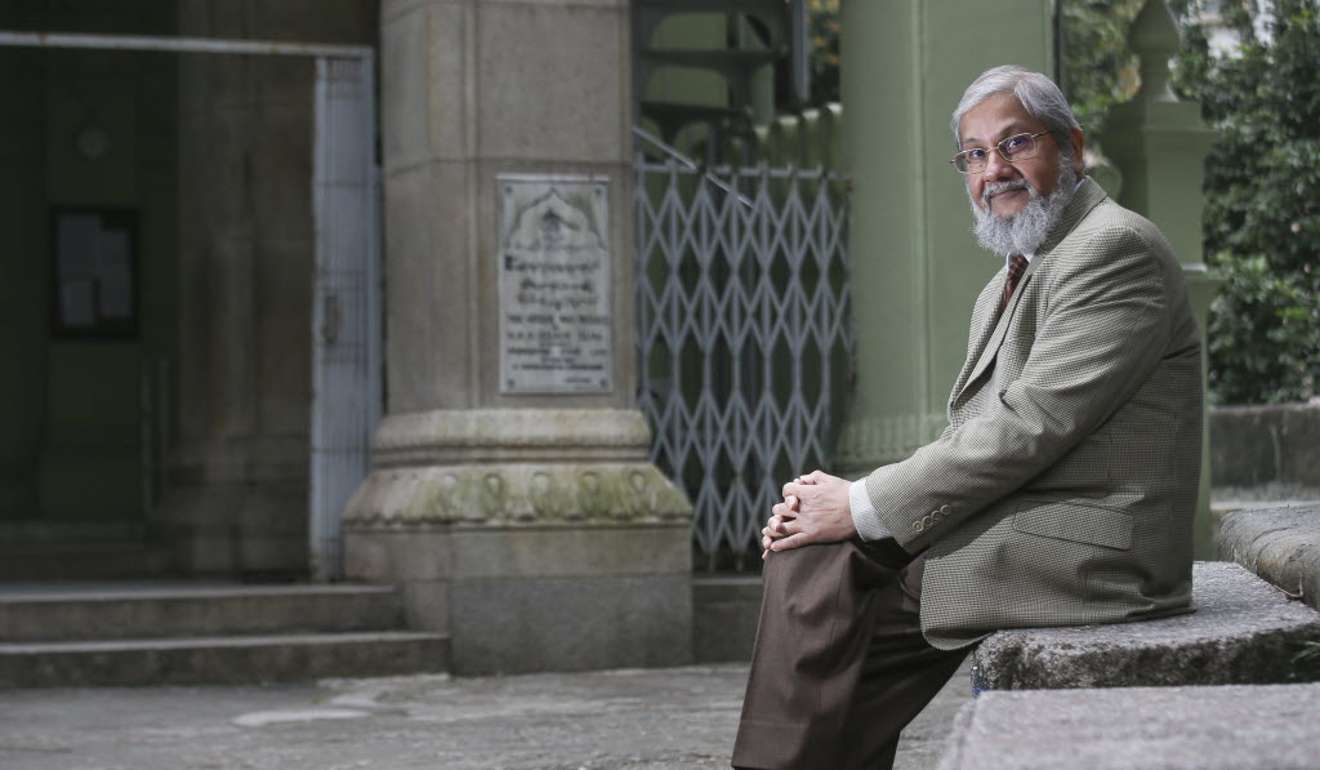
Tyebkhan’s family, who are originally from India, came to Hong Kong 120 years ago.
In the 1970s he went to study in the Midwestern US state of Wisconsin.
“Wisconsin is one of the most progressive US states, but still I would meet students who had never been exposed to a foreigner. Today in America, in many inland states they are still living in their little private world,” he said.
I think it’s a great country ... But I feel when I go there that I don’t know what the person is thinking when I meet him: is he afraid of me?
Now every time Tyebkhan returns to the US, he feels a sense of anxiety crossing the border and an uneasy feeling talking to strangers.
“I think it’s a great country. I go there on and off. Still have relatives there,” he said. “But I feel when I go there that I don’t know what the person is thinking when I meet him: is he afraid of me? Is he having some negative thoughts because he thinks I am a Muslim? Or he doesn’t care? In Hong Kong, the average Chinese doesn’t care,” he noted.
He said that the ban was creating a divide in the community. “Every person in these [six] countries is not a terrorist. Why have they been targeted? It’s all politics,” he concluded.
Yasir is concerned the ban could be used as a recruiting tool for terrorists.
“It’s going to change their entire game. They can simply say: ‘Look, we told you, these guys hate you’ … I am very afraid for the new generation,” he said.
The young Muslim said he was uncertain about the way the world was changing now, but remained hopeful.
“We don’t have a shortage of good people. The good people just need to keep speaking up and need to keep building bridges between communities.”
Parents in the US brace for ‘challenging times’
Muslim parents in the US are preparing their children to face situations where they will be discriminated against.
Ali Mohammed, 45, a father of two, has little doubt that his children will be confronted with the “challenging times” the country is going through.
“I want them to be prepared to handle these situations. This is going to happen. It’s not a matter of if, but when,” he said.
I do feel very concerned these days, especially for my daughter because she wears a hijab
Mohammed, a technology manager originally from India, migrated to the US 20 years ago. He lives in New York with his wife and two children, a 19-year-old girl and a 15-year-old boy.
“I tell my kids they should be watchful of their surroundings. I do feel very concerned these days, especially for my daughter because she wears a hijab.”
The general atmosphere had changed since the ban was first announced, he said. It did not mean the community was not discriminated against before the election of Donald Trump, but there was now a greater sense of uncertainty and frustration.
“I have probably been a little more cautious on where they go, what time … And we have talked at home if they get confronted, how they should react, how they should ask for help and from whom,” Mohammed said.
Khalil Rasheed, 35, a youth counsellor at an NGO in Chicago with relatives in Hong Kong, also has two children. They are still too small to understand the US they will grow up in – his daughter is five and his son one. Yet he shares some of Mohammed’s concerns.
“I would like my children to have a wide world view… My concern in the US is that it’s becoming too different,” said the African-American who converted to Islam at 13.
“We have two populations, one that is diverse, open-minded and embraces immigrants, and then we have another segment of population that is conservative, focused on the white identity angle … I am afraid of seeing a breaking point,” he said.
Rasheed, who said he had been a target of both racial and religious discrimination – for example, having eggs thrown at him – said he feared policies that could further marginalise people.
“Right now it’s just an immigration ban, but down the road it could be anything,” he said.
A 2017 timeline of events
January 27
The Trump administration issues an entry ban on citizens from seven Muslim-majority nations – Iran, Iraq, Libya, Somalia, Sudan, Syria and Yemen – to last 90 days, and it suspends America’s refugee programme for four months. The White House also cuts the number of refugees to be admitted each year from about 110,000 to 50,000.
The order triggers confusion at airports across the US as well as overseas, as government officials, security workers and airlines become unsure about how to proceed. Hundreds of travellers are detained and questioned or diverted in transit. Across the country, petitions are filed against the order and protests organised.
February 3
The travel ban is temporarily suspended by a federal judge, but the US Department of Justice appeals against the decision.
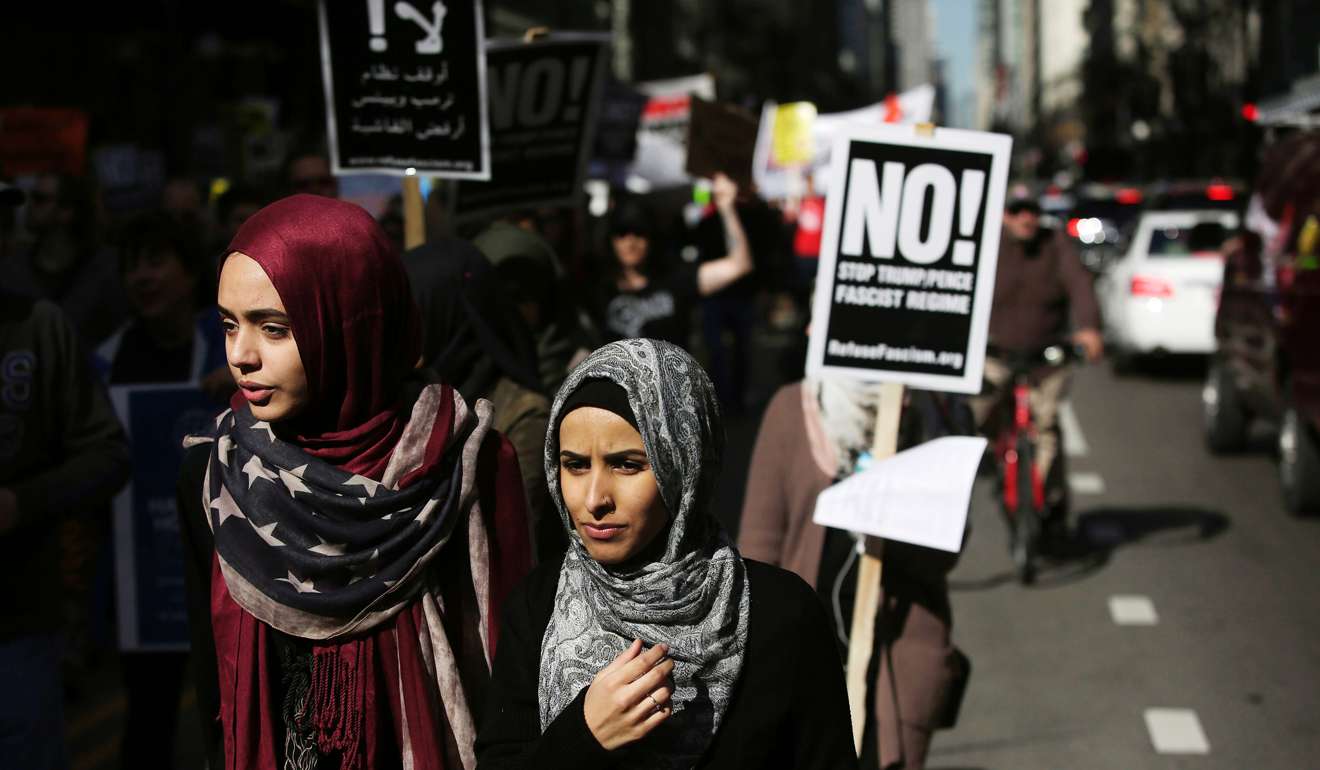
February 9
A federal appeal court in San Francisco refuses to reinstate the ban in the first ruling by an appellate court on the order. Trump vows to fight the decision.
March 6
A new executive order, which retains key elements of the previous one, is announced. The directive does not impose a blanket ban on citizens of Iraq, and it reverses an indefinite ban on Syrian refugees. It removes a section that granted preferential treatment to refugees from religious minority groups which was considered as evidence of discrimination against Muslims. The new ban leaves open the possibility of later including nationals of other countries, but it exempts current US visa holders and legal permanent residents, otherwise known as green card holders. Democrats and opponents of the order expect a renewed legal battle.

